9 Banned Foods Around the World And 8 Global Alternatives That Are Totally Worth Trying
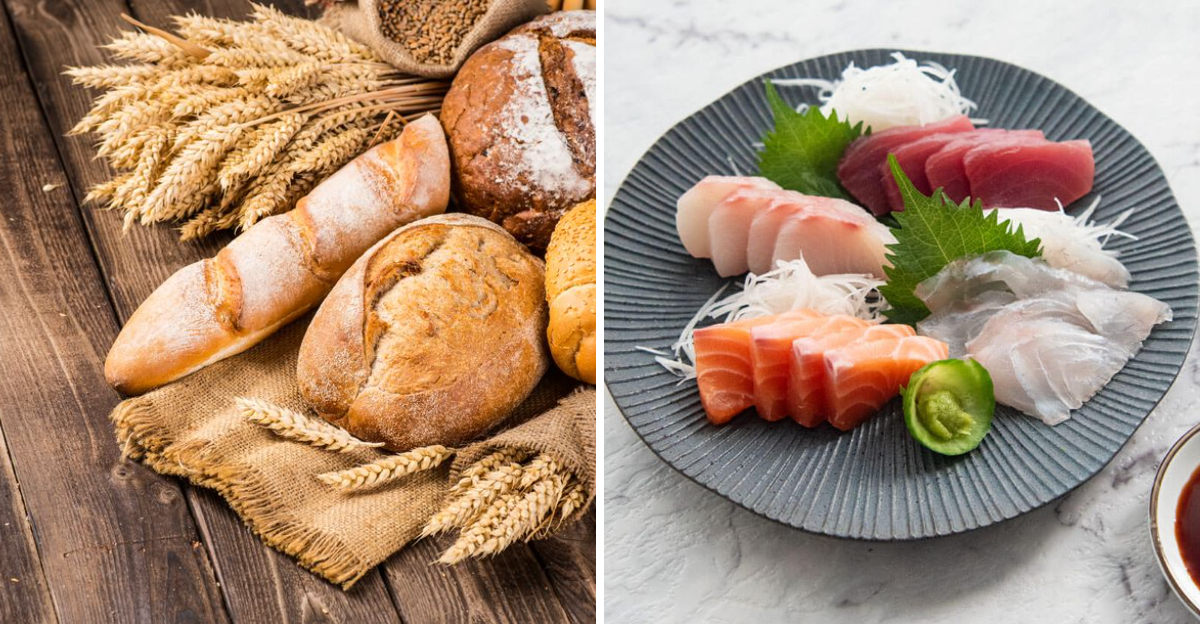
Exploring the complex world of banned foods unveils not only the strict regulations many countries impose but also the fascinating alternatives that can delight your taste buds without the legal hassle. This list will take you on a culinary journey through nine foods banned for various reasons, and eight global alternatives that are not only legal but also offer a unique and delightful experience. With varying tones and engaging insights, each item presents a unique view into the world of banned and alternative foods.
1. U.S. Farmed Salmon
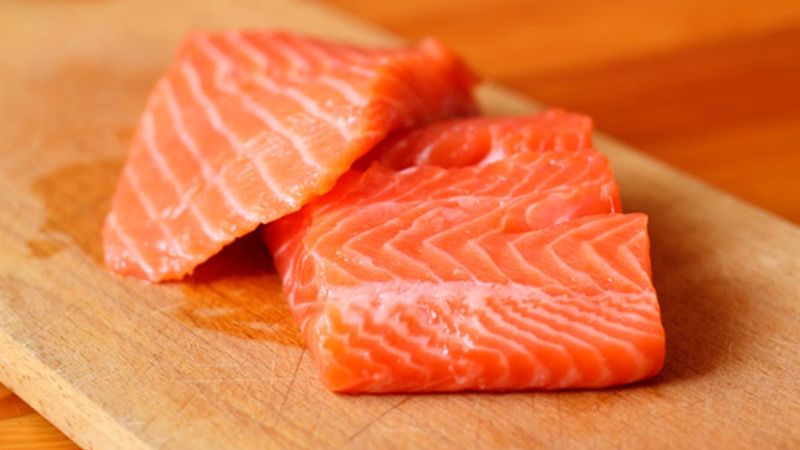
In some corners of the world, U.S. farmed salmon is treated like a stranger at a feast. Its synthetic additives and antibiotics spark debates. Australia and New Zealand have waved goodbye to this fishy friend, citing health concerns.
Wild-caught salmon, however, swims gracefully through acceptance channels. The contrast between farmed and wild-caught salmon paints a vivid picture of culinary choices.
It’s a tale of two fishes, where nature’s bounty outshines artificial embellishments. For those looking to enjoy salmon without the side of controversy, wild-caught is the way to go.
2. Mountain Dew
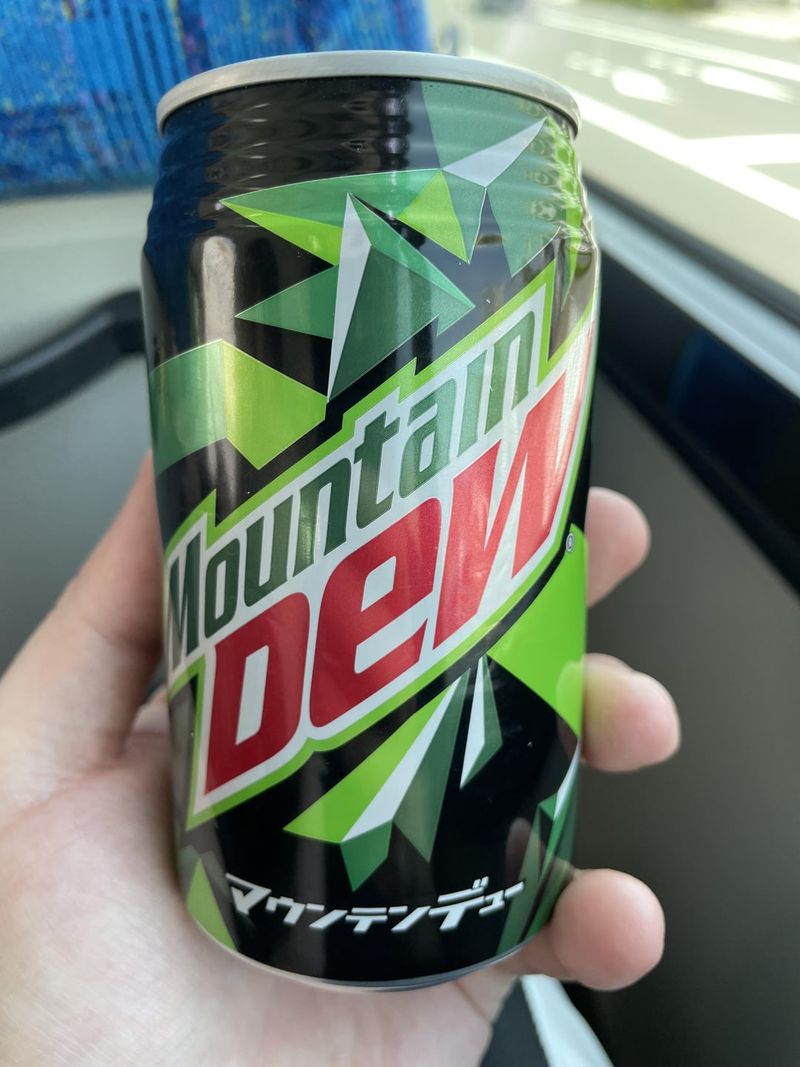
Mountain Dew, a citrusy explosion in a bottle, finds itself constrained by borders in Europe and Japan. The reason? Brominated vegetable oil (BVO), an emulsifier that moonlights as a flame retardant.
This ingredient transforms a vibrant soda into a subject of scrutiny. While some markets relish the citrus zest, others shun it due to health considerations.
The narrative of Mountain Dew is one of flavor versus regulation. In regions where it’s banned, people might turn to other tangy refreshments that don’t carry the baggage of BVO.
3. Kinder Surprise Eggs
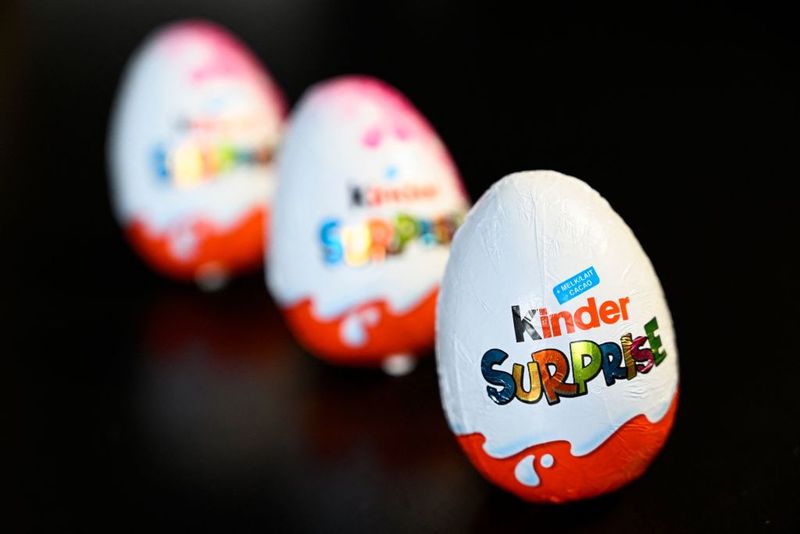
Kinder Surprise Eggs carry a whimsical allure, loved by children worldwide. But in the U.S., these chocolate delights are met with a bureaucratic frown.
The embedded toy, rather than the candy itself, poses a choking hazard, making them a forbidden treat. It’s a contrast of joy and caution, where regulations prioritize safety over surprise.
These eggs symbolize the delicate balance between indulgence and security. While banned in one part of the globe, they continue to charm elsewhere, with Europe offering a safer alternative.
4. Ractopamine-Pork

In the world of pork, ractopamine is a name that divides. Used to promote lean growth in pigs, it’s a controversial figure. Over 160 countries, including China, Russia, and the EU, have turned their backs on it.
The U.S., however, embraces this additive, creating a stark contrast. It’s a story of health versus efficiency, where different regions weigh benefits and risks.
For those who seek pork without ractopamine, the world offers diverse options, reflecting a culinary choice as much as a regulatory one.
5. Foie Gras
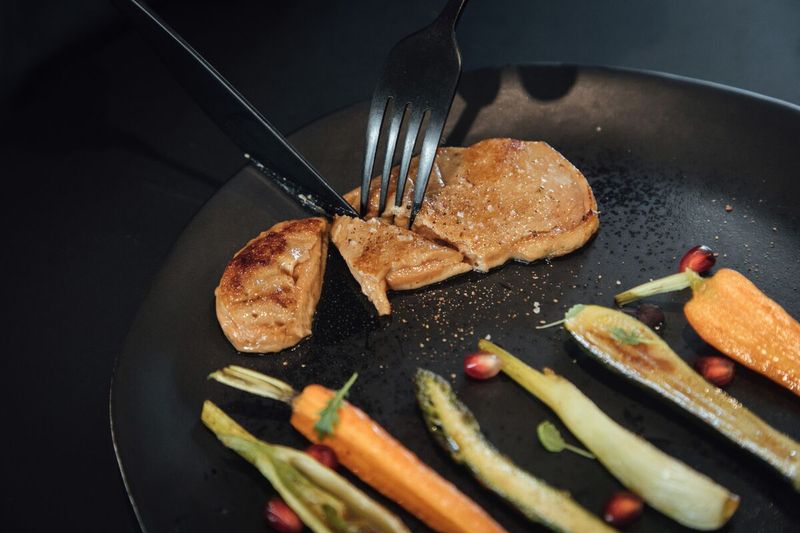
Foie gras, a luxurious delight, carries with it a tale of ethical debate. Known for its rich, buttery texture, it’s the product of force-feeding ducks or geese—an act that has incited bans in places like India, the UK, and parts of the U.S.
This dish is a symbol of culinary opulence shadowed by ethical concerns.
Those who oppose it look for alternatives that capture the richness without the cruelty. Duck confit emerges as a savory substitute, providing a guilt-free indulgence.
6. Artificial Food Dyes

Artificial food dyes, with their bright allure, face scrutiny in parts of Europe. Dyes like Red 40 and Yellow 5 are linked to hyperactivity in children, prompting tight regulations or outright bans.
These colorful additives, once widespread, now navigate a complex landscape of safety and aesthetics. The debate revolves around health versus visual appeal.
As some regions opt for natural hues, others continue to embrace the synthetic spectrum. The story of artificial dyes is a colorful conversation about caution and creativity.
7. Potassium Bromate
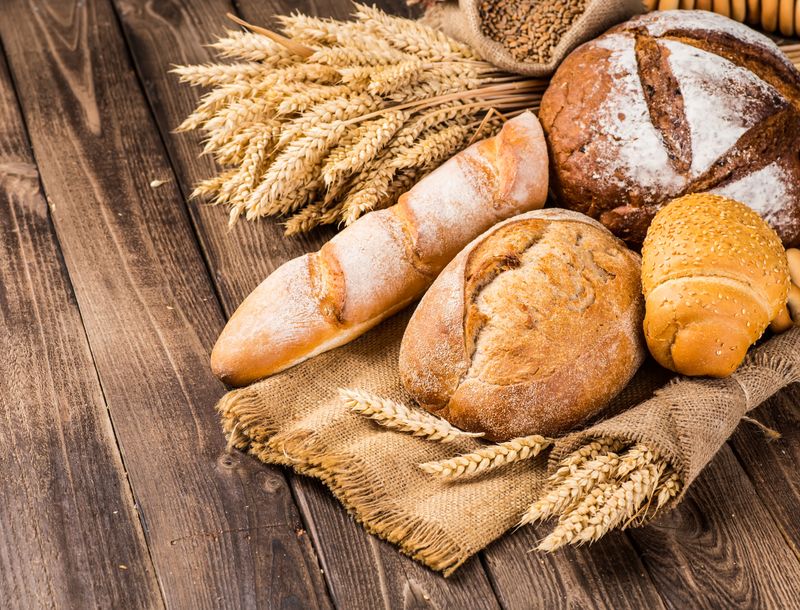
Potassium bromate, a dough strengthener, sits at the center of a global controversy. While it strengthens bread, it’s considered a possible carcinogen, leading countries like the EU, China, and Brazil to ban it.
This chemical’s presence in U.S. breads sparks debates over health and innovation. It’s a tale of tradition versus transformation, where the quest for perfect bread leads to chemical crossroads.
Sourdough bread, with its natural fermentation process, offers a flavorful alternative, free from such additives.
8. Ortolan

The ortolan, a tiny bird, becomes a culinary curiosity as much as an ethical quandary. Traditionally eaten whole in France, its consumption has faced bans across the EU due to endangered species concerns.
The ortolan’s story is one of tradition clashing with conservation. Its delicate flavor contrasts with the weighty ethical issues surrounding its consumption.
As nations protect this avian delicacy, alternatives like roasted quail provide a sustainable, flavorful substitute without the moral dilemma.
9. Farmed Chicken with Arsenic Additives

Farmed chicken, when combined with arsenic additives, enters a controversial spotlight. While some U.S. producers utilize these feed additives, the EU rejects them due to health concerns.
This practice raises questions about food safety and regulation. It’s a story of innovation meeting resistance, where the quest for efficiency encounters ethical barriers.
For those looking to enjoy chicken without such additives, the world offers alternatives that focus on purity and transparency, aligning with a growing demand for clean eating.
10. Sushi-Grade Sashimi

In Japan, sushi-grade sashimi is not just a dish; it’s an art form. Freshly sliced, responsibly sourced raw fish like salmon or tuna is served with wasabi and soy.
This culinary experience is about simplicity and purity, where the fish’s natural flavor takes center stage. It’s a contrast to processed alternatives, offering a clean, authentic taste.
Sushi-grade sashimi embodies the delicate balance of tradition and innovation, capturing the essence of Japanese culinary artistry and providing a refreshing alternative to banned counterparts.
11. Orangina
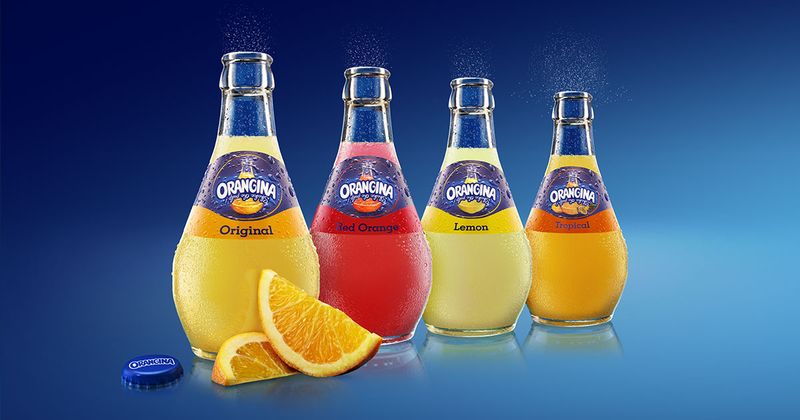
Orangina is a citrus delight that fizzes with authenticity. Unlike its counterparts filled with artificial dyes, this drink boasts a natural orange essence.
Originating from France, it captures the spirit of a sunlit café, offering a refreshing alternative to sodas with questionable ingredients. It’s a tale of nature’s bounty over synthetic interventions.
Orangina’s story is one of authenticity and nostalgia, evoking childhood memories with every sip. It’s a drink that stands the test of time, celebrated for its genuine citrus zing.
12. Choco Surprise

Choco Surprise, the European cousin of Kinder Eggs, offers a twist on the classic experience. With the toy placed beside the treat, safety takes the forefront, allowing kids to enjoy without risk.
This innovative approach respects regulations while retaining the magic of discovery. It’s a balance of joy and caution, redefining indulgence for a new generation.
Choco Surprise invites children into a world of wonder without the worry, making it a delightful alternative in regions where safety is paramount.
13. Iberico Pork
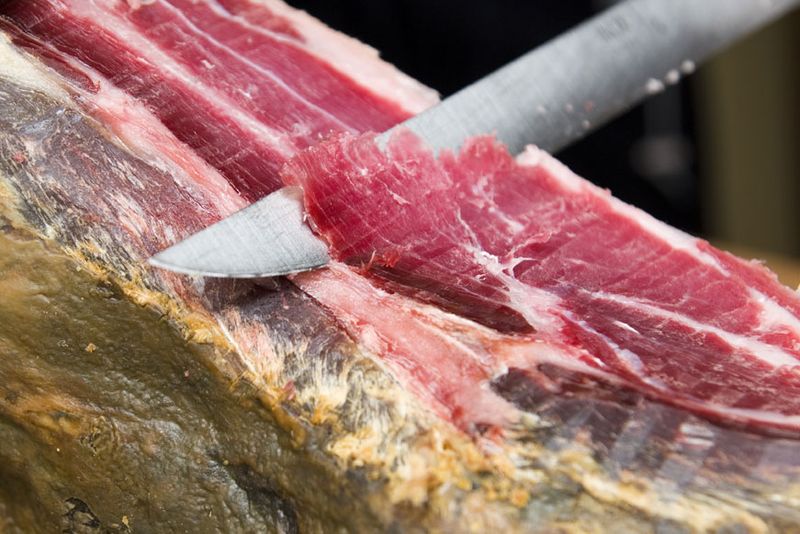
Iberico pork, hailing from Spain, is a culinary marvel. These free-range pigs feast on acorns, imparting a rich, nutty flavor unmatched by any chemical enhancements.
This pork is a testament to nature’s artistry, offering a depth of taste that speaks to tradition and terroir. It’s a celebration of authenticity, where the land’s bounty becomes a culinary masterpiece.
For those seeking pork that respects nature and tradition, Iberico stands as a premium choice, reflecting a commitment to quality and natural flavors.
14. Duck Confit
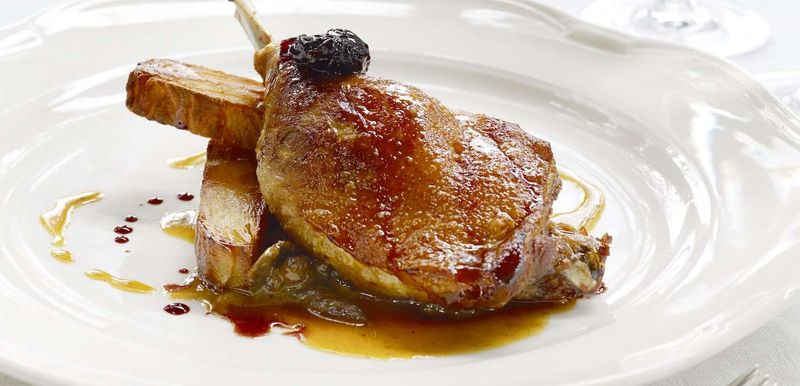
Duck confit is a French classic that delights with its rich, savory taste. Slow-cooked to perfection, this dish respects tradition while sidestepping the ethical issues associated with foie gras.
Its tender meat and crispy skin create a harmonious symphony of flavors that dance on the palate. Duck confit is a celebration of culinary expertise, offering a guilt-free indulgence.
For those who cherish taste and ethics, duck confit emerges as a flavorful alternative, proving that luxury need not compromise conscience.
15. Natural Beet Juice Colorant
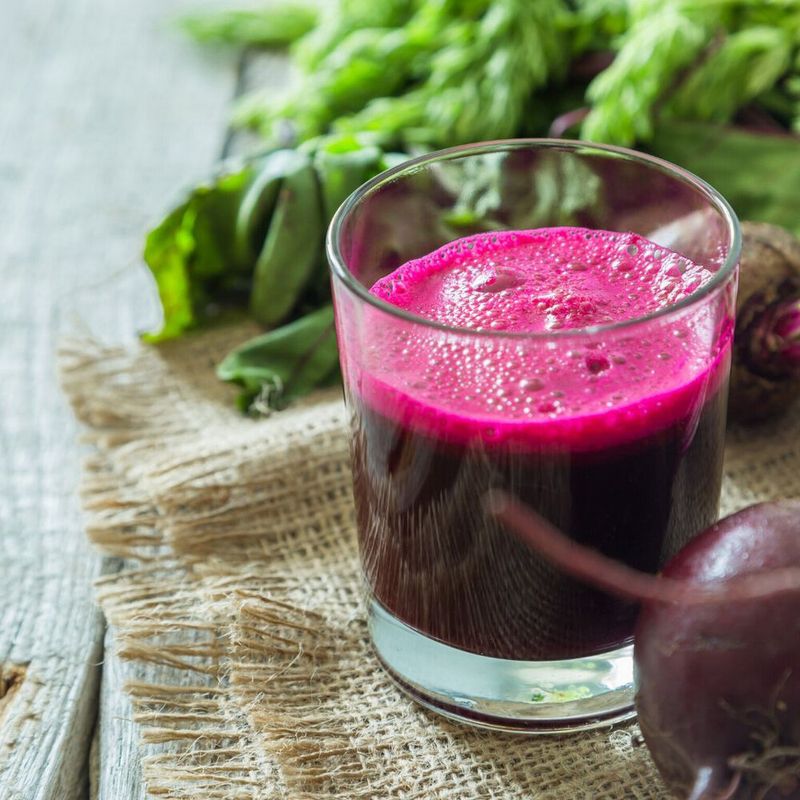
Natural beet juice colorant brings vibrancy to food without the synthetic shadows. Used in smoothies, yogurts, and baked goods, it imparts a bold hue that’s as pleasing to the eye as it is safe.
It’s a shift from artificial dyes, embracing nature’s palette with open arms. This plant-based colorant reflects a trend toward transparency and health.
For those who value color without compromise, natural beet juice offers a vibrant path, painting plates with nature’s own brush—beautiful, bright, and utterly wholesome.
16. Sourdough Bread

Sourdough bread is a nod to tradition and taste. Crafted with natural starters, it avoids potassium bromate, relying on time-honored techniques that bring out a tangy depth of flavor.
This bread is more than a staple; it’s a testament to patience and skill. Each slice tells the story of fermentation and flavor, where chemistry meets culinary art.
For bread enthusiasts seeking authenticity, sourdough offers a taste of history, proving that sometimes the old ways are the best ways, with flavor to match.
17. Roasted Quail

Roasted quail presents a gourmet experience without the ethical strings attached. With its rich, gamey flavor, it offers a sustainable alternative to dishes like the ortolan.
This dish is a nod to culinary heritage, where tradition meets mindfulness. Roasted quail stands as a flavorful testament to responsible consumption.
For those who crave a taste of luxury without compromise, roasted quail delivers, combining indulgence with integrity. It’s a dish that satisfies both palate and principle, celebrating flavor with conscience.
